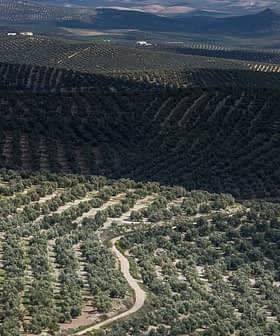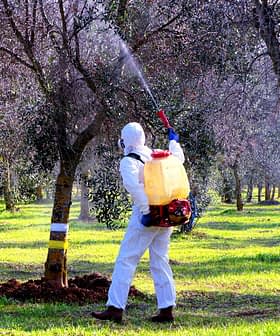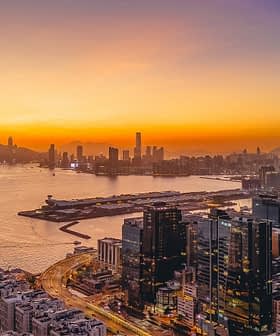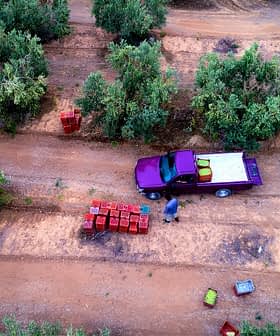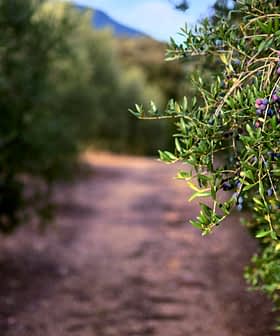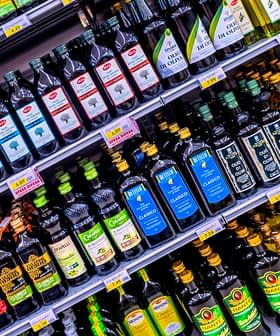Spanish Campaigners Lobby for Glyphosate Ban After EU Fails to Reach Consensus
The world’s most used herbicide was found in concentrations exceeding the legal limit in Mar Menor, spurring advocates to call for a ban in Spain.
 Campaigners claim glyphosate is irreparably damaging the marine ecosystem of Mar Menor in southeastern Spain.
Campaigners claim glyphosate is irreparably damaging the marine ecosystem of Mar Menor in southeastern Spain. Environmental campaigners in Spain are urging the government to ban glyphosate and support pesticide-free agriculture following a study showing high levels of the herbicide in Mar Menor. The Eco-citizen Association for a Living Sea sent a petition to the government, citing concerns about health impacts and environmental damage from glyphosate use.
Environmental campaigners in Spain have called on the government to ban the controversial herbicide glyphosate and support the transition to pesticide-free agriculture.
The Asociación Eco Ciudadana Por Un Mar Vivo (Eco-citizen Association for a Living Sea) and 150 other advocacy groups sent the petition in the wake of a recent study, which found levels of glyphosate that “far exceed” the legal limits in Mar Menor.
As long as glyphosate reaches the Mar Menor, it cannot be saved.
Mar Menor is a coastal lagoon in the southeastern Spanish autonomous community of Murcia.
In October 2022, researchers collected samples from two locations on the lagoon and found the glyphosate levels to reach 0.4 micrograms per liter, four times above the legal limit. The findings of the study were published in late 2023.
See Also:Campaign Aims to Curb Misuse of Term Regenerative in AgricultureGlyphosate, commonly sold under Bayer’s Roundup brand, is used by olive growers and in many other types of crops.
While the World Health Organization (WHO) has classified it as “probably carcinogenic in humans,” separate research has disputed this finding.
Meanwhile, a literature review from the Soil Association, a charity, found that glyphosate may damage soil health by interfering with the reproduction of mycorrhizal fungi, which improve drought tolerance and help plants stave off pathogens.
According to Caroline Rivière, a spokesperson for the Eco-citizen Association for a Living Sea, the glyphosate likely accumulated in the lagoon due to agricultural runoff from rainfall.
“We were convinced that glyphosate was being used excessively in the area due to various indications, but we lacked evidence,” she told Olive Oil Times. “This was our opportunity to prove it.”
While the researchers could not identify the source of the runoff, high-density olive groves are located near the western coast of the lagoon and 3.5 kilometers from the Albujón Ravine, one of the sites tested for the study.
The other sample was taken from the perimeter canal of San Pedro del Pinatar, located on the lagoon’s northern shore.
According to data from Spain’s Ministry of Agriculture, Fisheries and Food, Murcia produced 7,710 tons of olive oil in the 2023/24 crop year. Overall, Spain has yielded 775,320 tons in the current harvest.
Rivière believes that the use of glyphosate is harming the population of Murcia and the environment.
“There are high rates of cancer, miscarriage and autism in the region of Murcia,” Rivière said. “That is why we believe, as the WHO states, that there is a real connection between pesticides like glyphosate and illnesses.”
She added that this raises serious concerns about the immediate and long-term consequences for the health of those living in the region and Mar Menor’s delicately balanced ecosystem.
“Over time, with all the chemicals used in the watershed flowing into the Mar Menor, including glyphosate, the soil will become completely sterile for crops, and extra soil farming will be necessary,” Rivière said.
“The marine system is an ecosystem in which multiple factors intersect, especially in the case of the Mar Menor,” she added. “Glyphosate is one of the main factors that destabilize this system. As long as glyphosate reaches the Mar Menor, it cannot be saved. Many studies worldwide demonstrate this.”
Campaigners also sent the petition in response to the European Commission’s decision to permit glyphosate’s use for ten more years after European Union member states failed to agree on a ban in September.
“We knew that for political and economic reasons, the E.U. would renew the authorization for glyphosate use,” Rivière said. “The economic interests of many companies were too important for the current European economy.”
“Europe is an economic union, not a social or health union,” she added. “Many studies worldwide show that glyphosate affects marine systems, including algae, plants, microorganisms, mollusks and fish,” she added. “As we emphasized earlier, it affects human health.”
The decision reflects ongoing debate among member states, with Germany and France opposing glyphosate’s re-authorization. However, Germany lifted its ban on the herbicide temporarily until June 2024.
“We see that we have a very long battle ahead because this decision will directly affect our environment,” Rivière said. “However, if we gather enough evidence and exert enough social pressure, there is the possibility of banning or at least further limiting glyphosate in our area through national or local legal or political decisions.”
Share this article



